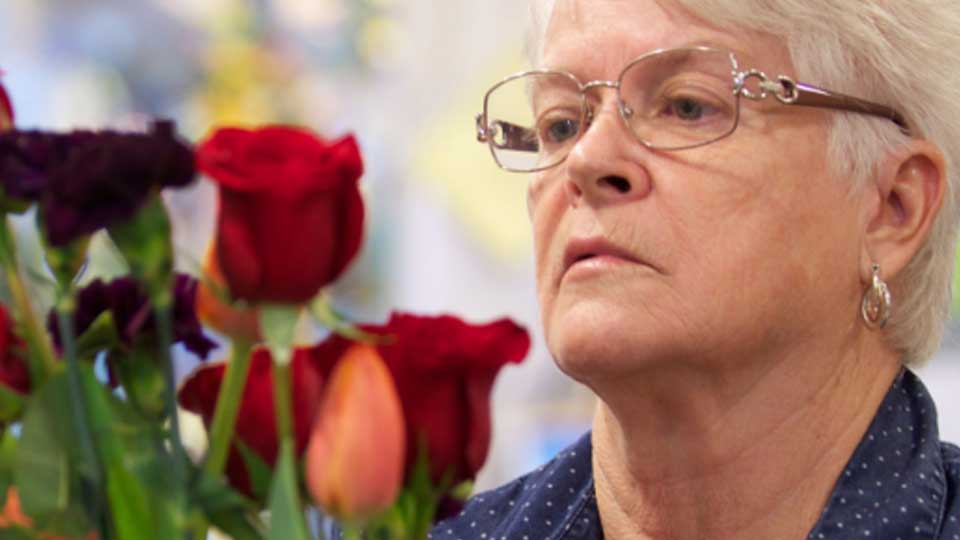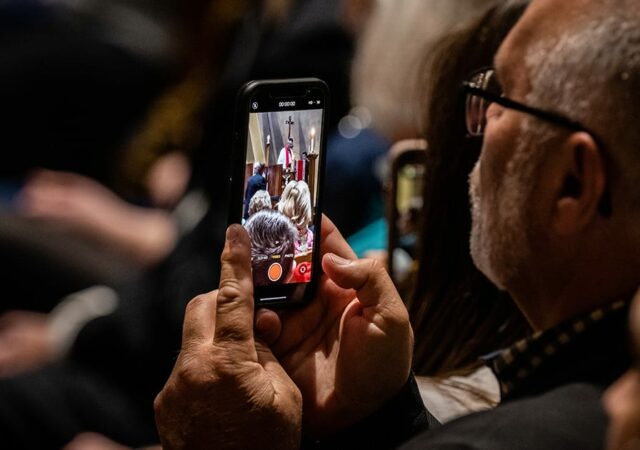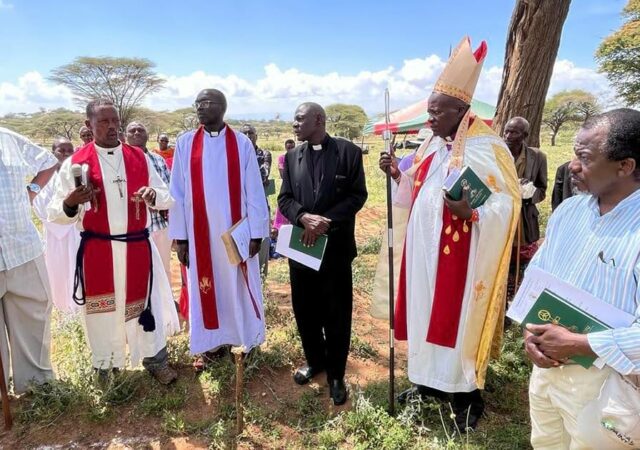
Can the state force artists to create things that violate their consciences? State regulatory agencies and courts have ruled “yes.”
Christian bakers, photographers and florists have been punished with fines and the loss of their businesses for refusing to make creations celebrating gay marriage.
On this month’s “Free to be Faithful” program, moderator Kip Allen will speak with a lawyer from Alliance Defending Freedom about the case of Barronelle Stutzman, owner of Arlene’s Flowers of Richland, Wash. Stutzman was sued after declining to beautify a gay marriage ceremony.
In February, Washington’s supreme court ruled against Stutzman and ordered her to pay penalties and attorney fees for refusing to use her God-given talent to celebrate something she believes is immoral.
(Read an article from last October about the LCMS joining an amicus brief supporting Stutzman in the case before the Washington Supreme Court.)
Stutzman’s attorneys at Alliance Defending Freedom have asked the U.S. Supreme Court to hear the case, saying the state rulings violate First Amendment protections.
The program will air at 2:30 p.m. (Central time) March 15 on Worldwide KFUO, and will stream online at kfuo.org.
Allen moderates such “Free to be Faithful” discussions on Worldwide KFUO the third Wednesday of each month.
Listen on KFUO.orgPosted March 13, 2017





Does she refuse to sell flowers to people who are having a second marriage following a divorce? Does she refuse to sell flowers to people who were living together before the wedding? Does she refuse to sell flowers to people who have committed crimes? Why is this issue the one she chooses to take a stand against? Isn’t all sin the same?
All sins are the same in God’s eyes, including hers, including mine, and all others that live or have lived on this earth since the fall of His perfect, beautiful creation. Are we not called to be obedient to the government God has placed to rule us? Yes we are. Are we to submit to it when it also contrasts with God’s word? We are not. The only differences between any sin and another are whether or not there is a struggle to fight against it whilst in it, or if sin has been committed but repentance has already been so graciously and undeservingly given as God has promised to those who repent in a true spirit of contrition, or if sin is willfully committed and live in with no desire for repentance. But I know not the condition of the heart of all men. I cannot speak for any sinner other than myself and I sin greatly. I do not know the answer to this problem when dealing with the world, but only with my brothers and sisters in Christ. My mercy for my brother because of Gods mercy for me. May He teach us through His word, enable us to hold fast to our faith and may His spirit guide us as we venture into unknown territory.
It seems that a faction of today’s society, including some religious organizations are intolerant of the individual Constitutional rights of others and federally appointed judges, judges who have a responsibility to uphold the Constitution, are acting way above the limits of their authority.
The analogy between this case and not selling flowers to those who have been divorced or living together before marriage is a deeply flawed one. All people are sinners and should be serviced by Christians if the ceremony is not in and of itself an affront to the Bible. Barronelle Stutzman served the plantiffs for years before this lawsuit was brought, which disproves one of the biggest arguments that many people bring up in this case. The problem is not with the class of people; it is that the nature of the very ceremony itself is an affront to the principles of the Bible.
I agree with Bradfor. Following is a Quotation written by James Madison at the time of our founding.
“Property” by James Madison
THIS TERM IN ITS PARTICULAR APPLICATION MEANS “THAT dominion which one man claims and exercises over the external things of the world, in exclusion of every other individual.” In its larger and juster meaning, it embraces every thing to which a man may attach a value and have a right; and which leaves to every one else the like advantage. In the former sense, a man’s land, or merchandize, or money is called his property. In the latter sense, a man has property in his opinions and the free communication of them. He has a property of peculiar value in his religious opinions, and in the profession and practice dictated by them. He has a property very dear to him in the safety and liberty of his person. He has an equal property in the free use of his faculties and free choice of the objects on which to employ them. In a word, as a man is said to have a right to his property, he may be equally said to have a property in his rights. Where an excess of power prevails, property of no sort is duly respected. No man is safe in his opinions, his person, his faculties, or his possessions. Where there is an excess of liberty, the effect is the same, tho’ from an opposite cause. Government is instituted to protect property of every sort; as well that which lies in various rights of individuals, as that which the term particularly expresses. This being the end of government, that alone is a just government, which impartially secures to every man, whatever is his. According to this standard of merit, the praise of affording a just security to property, should be sparingly bestowed on a government which, however scrupulously guarding the possessions of individuals, does not protect them in the enjoyment and communication of their opinions, in which they have an equal, and in the estimation of some, a more valuable property.
More sparingly should this praise be allowed to a government, where a man’s religious rights are violated by penalties, or fettered by tests, or taxed by a hierarchy. Conscience is the most sacred of all property; other property depending in part on positive law, the exercise of that, being a natural and unalienable right.
US Constitution Amendment I
Congress shall make no law respecting an establishment of religion, or prohibiting the free exercise thereof; or abridging the freedom of speech, or of the press; or the right of the people peaceably to assemble, and to petition the Government for a redress of grievances.
Arnn, Dr. Larry. The Founders’ Key: The Divine and Natural Connection Between the Declaration and the Constitution and What We Risk by Losing It (p. 148). Thomas Nelson. Kindle Edition.